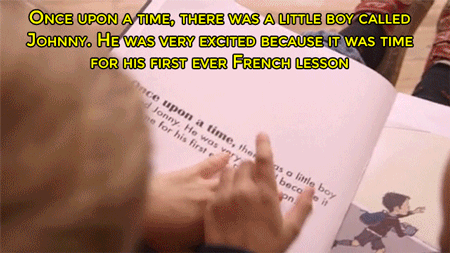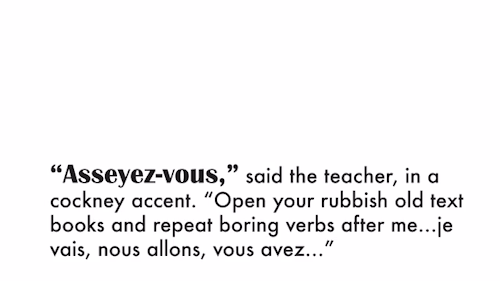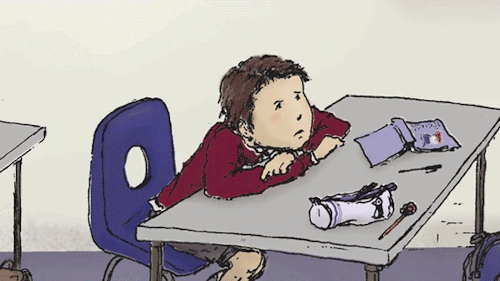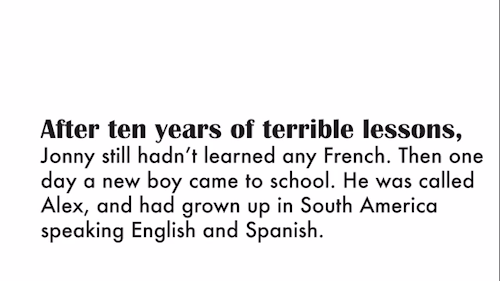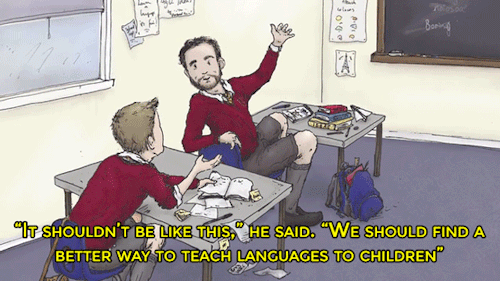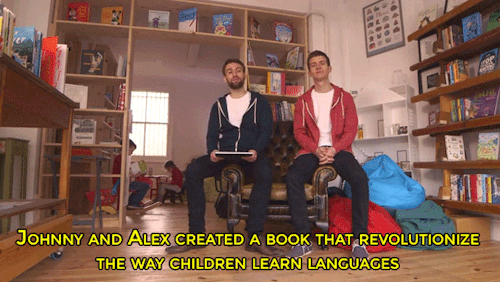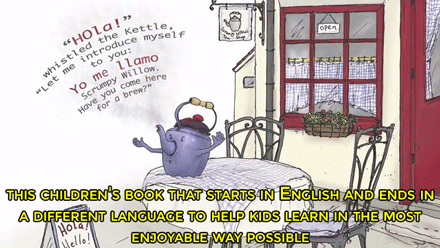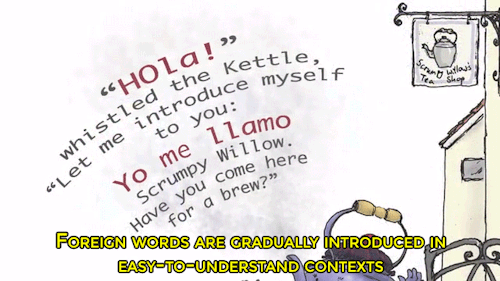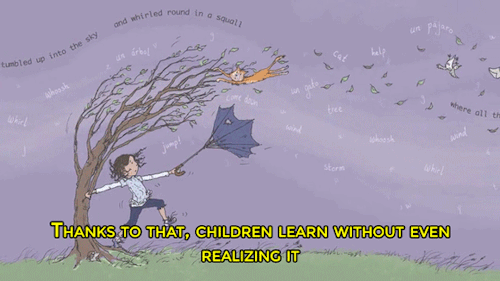I Think People Need To Understand That Part Of Living A Healthy Life Is Having Different People Who Understand
I think people need to understand that part of living a healthy life is having different people who understand different parts of you, so that you don’t overwhelm your friends and expect too much of them, or ignore valuable relationships because they feel “incomplete”.
We all want to be fully seen and understood, but it’s not shallow or meaningless to just have a pal you talk about TV shows with who isn’t also, like, your platonic soulmate. That’s still your friend! You still enhance each other’s lives with your company. Not everything that matters is profound.
I think a lot of you are lonely because you’re waiting around for someone who sees into your soul instead of just plain old lookin’ at the people in your life, finding common ground, and planting a little garden there. Even if that garden only grows Star Trek fan theories and memes, it’s still good.
It just… makes me real sad that you guys can’t imagine a friendship where you don’t talk about sex and trauma constantly, or that you think these are prerequisites for “real” friendship. Like, it legitimately breaks my heart.
More Posts from Thecaffiend and Others

hey guys! for those of you who may not know me, I am Alexi (@alexistudies) and the long awaited masterpost is FINALLY here on how I study for Organic Chemistry (which i might have to retake lmaooo but that’s a story for a different time). Now, I don’t get the best grades, as my professor’s exams are ridiculously hard, but I have learned the material enough to teach others. If you’re struggling with how to navigate this mind-boggling course that’s pretty much like learning a new language, this post is for YOU! lets gettin it crackin’

Always start by reading the material BUT don’t go in with a cold read (aka just reading the chapter from start to finish) break it into 2 steps: SQ3R and then fully read.
SQ3R: Survey, Question, Read, Recite, Review
disclaimer: personally i do this method by chapter section so I am not overwhelmed with material!
survey: skim the material. read the titles of the sections and subsections, and glance over the actual material within the chapter. take mental note of weird acronyms you may see or vocabulary that stands out. this will prime your brain for all the information you’re going to get when you go the 3R’s.
question: get some sticky notes and write down questions for each section in the textbook. for example, if you just skimmed the section on “Sn1 Reactions”, write a question down on the sticky note like “what does Sn1 mean? what does its mechanism look like?” and stick it in the corresponding place. even if the section seems direct and you don’t have any questions, create one regardless. This will help the information stick! Don’t worry about answering them just yet.
read: pretty self explanatory but read a section of the textbook. read it twice if things still seem fuzzy after the first read, and this time, go slower. now, there should be a sticky note where you wrote a question during the second part of this process. write the answer in to the question based on your knowledge from your reading. also, feel free to take note of any other things that seem to stand out on this sticky note. again, i do this section by section in my textbook so i don’t get burned out or overwhelmed.
recite: once you’ve done the first three steps for the whole chapter, its time to collect all the sticky notes!!! set them down on a flat surface in their chronological order and get prepared with your notebook/tablet and stylus/etc. now you’ll compile all your sticky notes into reading notes! during this stage, read your sticky notes out loud and supplement your reading notes by copying & annotating examples from the textbook.

At this point, you should have already read and done most of the first step. Now, its time to go back through and really engage with the material. As you skim each section, you’ll answer the questions you wrote on the sticky notes! This is pretty self explanatory, I hope. This will make sure that you engage with the material and not just blankly read it. I’m a person who gets bored with textbook reading fairly quickly, this really helps me. Its okay if you don’t fully understand the concepts during this step because you’re just putting your feet in the water.
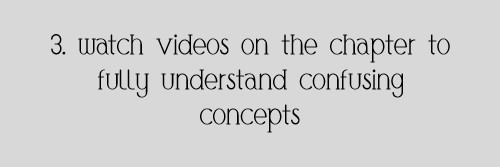
Still confused on the material? Have some small concepts you just can’t seem to get yet? Its okay! Now, you’ll get auditory/visual exposure which will probably help. I watch The Organic Chemistry Tutor’s videos whenever I feel stuck and I take notes as I watch the video to ensure I’m really paying attention.
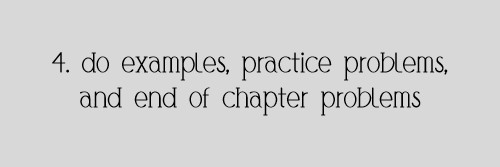
This step is to really see how much you know. Start with examples from the book, as the solutions are usually right there and they will walk you through. Then, move on to practice problems. In my textbook, they have exercises that follow right after most examples to practice that same concept. Once you’ve gone through as many of these as you deem fit, you should do the end of chapter problems! These problems tend to be a little more comprehensive and build on things from previous chapters, while also being more conceptual.

pls do your homework. it will reinforce everything. i’ve realized that the homework is not necessarily what will be covered on the exam, but it’s like … drills to see if you know the basics. but, this really depends on the professor and what they assign as homework! for me, the homework doesn’t even begin to compare to the complexity of the exams. highlight anything you get stuck on and once you’re done, go back and redo those problems + review that section in your notes and textbook!
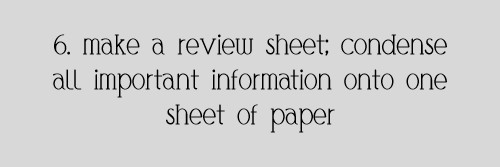
Review sheets are a life saver because once exams come around, you have one piece of paper you can study from and you don’t have to carry around all your notes! for ochem specifically, i recommend making a reaction sheet that’s a flow-chart (i.e., if i have these reagents, its going to be a hydroboration reaction). this was something i was hoping to do before my final, but i just burned out and never got to it :(( so i need to practice what i preach either when i retake ochem1 or when i move on to ochem2.
bonus tip!
Ask yourself the following questions when you study.
can you name things? (types of reactions, molecules using IUPAC nomenclature, etc)
can you identify things? (stereochemical relationships between molecules, concepts used in a reaction like markovnikov addition, etc)
can you develop things? (desired products for a reaction, etc)
can you interconvert between things? (from wedge dash > newman projection, chair conformation > newman projection, skeletal structure > fischer projection, reaction > energy coordinate diagram)
Hopefully this helps! I enjoyed making this post because I do enjoy organic chemistry, I just really need to do better in the class next semester and better implement these study techniques (and maybe find new ones that work better)!!
Thought experiment: the crew of a hypothetical Star Trek style TV show that’s been deliberately contrived to cause as many arguments as possible between canon-conscious fanfic authors.
A chief engineer whose facial appearance is apparently shockingly unusual, but whose face is never actually seen. The engineering deck is often obscured by steam, and their responsibilities frequently require them to wear a full-face protective shield, while any time they’re encountered outside of engineering they’re shot exclusively from the back, or with some foreground object conveniently blocking their face. There’s a running gag where any time someone tries to describe them they just can’t seem to come up with the right word.
A tactical officer who may or may not actually have a name. Unlike the chief engineer, above, no conspicuous concealment ever occurs; the show’s plot and dialogue are simply structured so that their name just happens never to come up, in such a way that a given audience member might not notice until someone points it out to them. The character is, of course, one half of the show’s primary canon ship. The show’s supplementary material is likewise phrased in such a way that the character’s name is never stated, with the character’s actor being credited as “also featuring”.
A chief medical officer who manages to deploy a strangely topical anecdote from their implausibly extensive prior career in nearly every episode. These anecdotes are careful never to directly contradict each other, but in aggregate form a personal history which cannot conceivably be true. The possibility that they’re just spinning tall tales is ruled out by the fact that their anecdotes are frequently corroborated by comments from other crew members who’ve either heard about the incident in question or were present themselves for some (generally unspecified) reason.
A communications officer and a science officer who are played by the same actor. They’re never seen on screen together, even while off duty. (e.g., at any gathering where one of them appears, the other “couldn’t make it”.) The circumstances that prevent them from ever being in the same room are often set up to lead the audience to suspect that they’re looking at one character pretending to be two separate people for some unspecified reason, but only characters who aren’t members of the crew ever notice the fact that they’re identical apart from the colour of their uniforms; the other crew members simply don’t see the resemblance.
The captain, who appears in every single episode and often plays a central role in the plot, yet has no regular actor, being portrayed by an endless parade of guest stars. Their age, gender, and overall appearance is usually wildly different from episode to episode, though they always wear the same distinctive headgear in order to allow the audience to easily recognise them. This is apparently a diegetic phenomenon, as other characters will occasionally comment in passing on the captain’s current appearance, but the phenomenon is otherwise so unremarkable to them that its significance is never discussed.
i really like just knowing things. learning new things is great of course but it truly does hit differently when you see a painting and know which era it's from and why it was painted in that way particular and how the artist was influenced by their time. it's nice just knowing how an author grew up and how that might have influenced their work. it is a good feeling
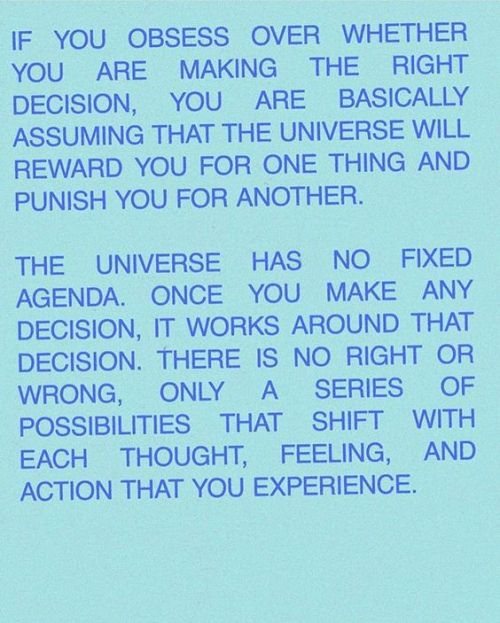
small shifts in stimuli are surprisingly simple to do and can do wonders for your mental state


Beaded necklace by Colleen Toland.
best thing tumblr ever did for me is the term "rotating it in my mind". it's really true that sometimes you think about something real hard but you can't tell what the thoughts are exactly. it's revolutionary stuff, i might even say
“[Keanu] Reeves said a recent conversation about “The Matrix” with a 15-year-old put things into a terrifying perspective. The actor explained to the teenager that his character, Neo, is fighting for what’s real. The teenager scoffed and said, “Who cares if it’s real?” “People are growing up with these tools: We’re listening to music already that’s made by AI in the style of Nirvana, there’s NFT digital art,” Reeves said. “It’s cool, like, Look what the cute machines can make! But there’s a corporatocracy behind it that’s looking to control those things. Culturally, socially, we’re gonna be confronted by the value of real, or the non-value. And then what’s going to be pushed on us? What’s going to be presented to us?” “It’s this sensorium. It’s spectacle. And it’s a system of control and manipulation,” Reeves continued. “We’re on our knees looking at cave walls and seeing the projections, and we’re not having the chance to look behind us.””
—
Keanu Reeves Slams Deepfakes, Film Contract Prevents Digital Edits - Variety
-
 aimasup liked this · 3 weeks ago
aimasup liked this · 3 weeks ago -
 ghosts-and-blue-sweaters liked this · 1 month ago
ghosts-and-blue-sweaters liked this · 1 month ago -
 catkin-morgs-kookaburralover liked this · 1 month ago
catkin-morgs-kookaburralover liked this · 1 month ago -
 subdee liked this · 1 month ago
subdee liked this · 1 month ago -
 artimies6 reblogged this · 1 month ago
artimies6 reblogged this · 1 month ago -
 archive-of-sorts reblogged this · 1 month ago
archive-of-sorts reblogged this · 1 month ago -
 braindead-virtually liked this · 1 month ago
braindead-virtually liked this · 1 month ago -
 kmonkyz liked this · 1 month ago
kmonkyz liked this · 1 month ago -
 paranoid-applet liked this · 1 month ago
paranoid-applet liked this · 1 month ago -
 voiceshearingyouloud reblogged this · 1 month ago
voiceshearingyouloud reblogged this · 1 month ago -
 aevarswall liked this · 2 months ago
aevarswall liked this · 2 months ago -
 sidebaxolotl reblogged this · 2 months ago
sidebaxolotl reblogged this · 2 months ago -
 psalmsinthedark liked this · 2 months ago
psalmsinthedark liked this · 2 months ago -
 chocomilkhome reblogged this · 2 months ago
chocomilkhome reblogged this · 2 months ago -
 meta-metamorph liked this · 2 months ago
meta-metamorph liked this · 2 months ago -
 itarobattemon liked this · 3 months ago
itarobattemon liked this · 3 months ago -
 shadow-spires reblogged this · 3 months ago
shadow-spires reblogged this · 3 months ago -
 p6pudding liked this · 3 months ago
p6pudding liked this · 3 months ago -
 summersky-joy liked this · 3 months ago
summersky-joy liked this · 3 months ago -
 gronkle reblogged this · 3 months ago
gronkle reblogged this · 3 months ago -
 oceanmcu liked this · 4 months ago
oceanmcu liked this · 4 months ago -
 sunsetcowboy liked this · 4 months ago
sunsetcowboy liked this · 4 months ago -
 nyctarian reblogged this · 4 months ago
nyctarian reblogged this · 4 months ago -
 freshfragrantegg liked this · 5 months ago
freshfragrantegg liked this · 5 months ago -
 astrobiojournal liked this · 5 months ago
astrobiojournal liked this · 5 months ago -
 thelovelygods liked this · 6 months ago
thelovelygods liked this · 6 months ago -
 patronsaintofvastnpreciouslosers liked this · 6 months ago
patronsaintofvastnpreciouslosers liked this · 6 months ago -
 sick-sick-girl reblogged this · 7 months ago
sick-sick-girl reblogged this · 7 months ago -
 bornazombiefrommercury reblogged this · 7 months ago
bornazombiefrommercury reblogged this · 7 months ago -
 forever-a-lostsoul reblogged this · 7 months ago
forever-a-lostsoul reblogged this · 7 months ago -
 daniel-r-h liked this · 7 months ago
daniel-r-h liked this · 7 months ago -
 lady-lucy13 reblogged this · 7 months ago
lady-lucy13 reblogged this · 7 months ago -
 likewedreamimpossiblethings liked this · 8 months ago
likewedreamimpossiblethings liked this · 8 months ago -
 nelsonandspringforever reblogged this · 8 months ago
nelsonandspringforever reblogged this · 8 months ago -
 after-nine-at-the-oasis liked this · 8 months ago
after-nine-at-the-oasis liked this · 8 months ago -
 phoebenpiperx reblogged this · 8 months ago
phoebenpiperx reblogged this · 8 months ago -
 phoebenpiperx liked this · 8 months ago
phoebenpiperx liked this · 8 months ago -
 raeli14 liked this · 8 months ago
raeli14 liked this · 8 months ago -
 sunshineseungminnie reblogged this · 9 months ago
sunshineseungminnie reblogged this · 9 months ago -
 duelunee liked this · 10 months ago
duelunee liked this · 10 months ago -
 pipeddream liked this · 11 months ago
pipeddream liked this · 11 months ago -
 linkeightvideo liked this · 11 months ago
linkeightvideo liked this · 11 months ago
